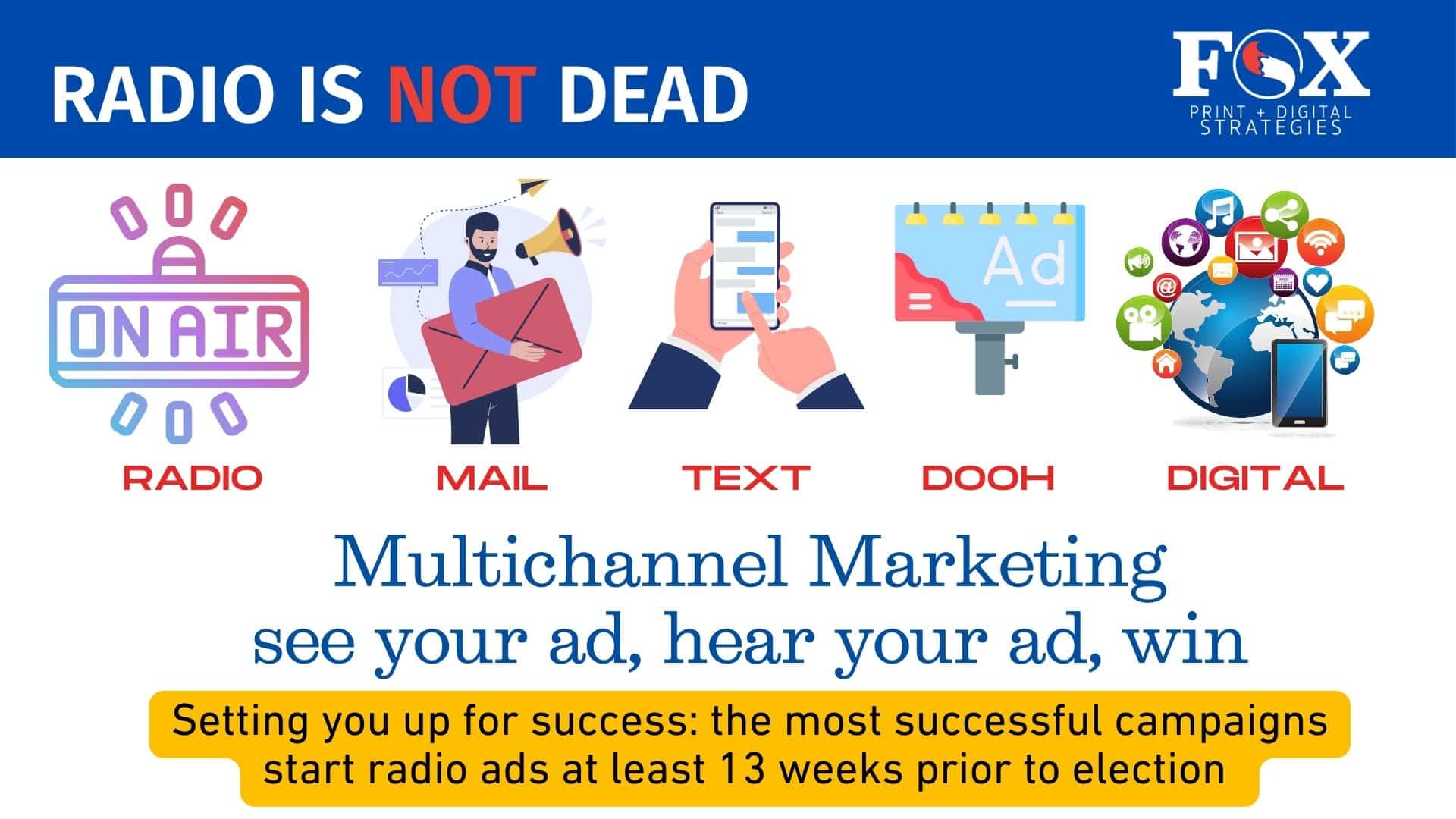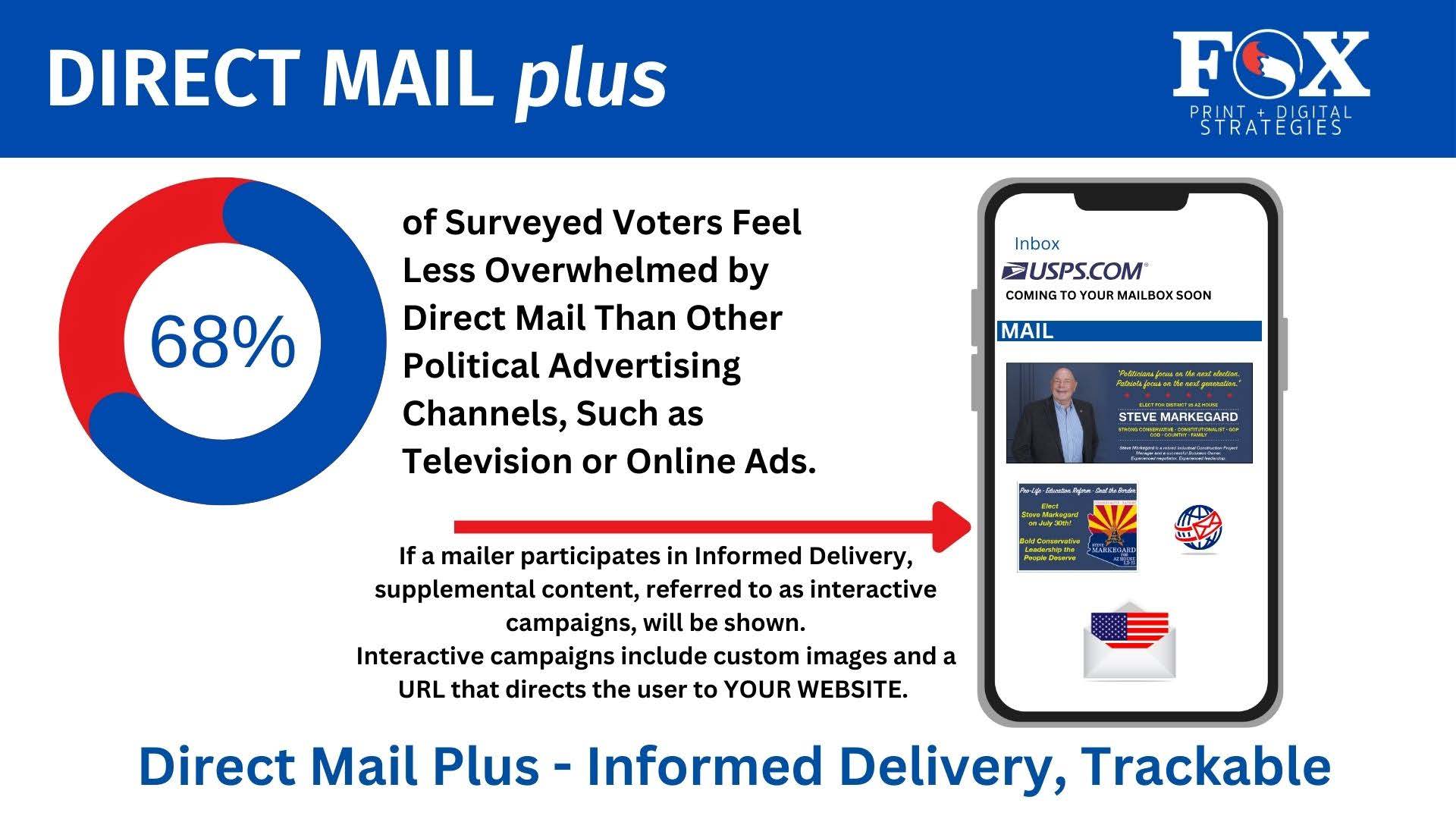
RADIO IS NOT DEAD
RADIO IS NOT DEAD The Power of Rural Radio in Political Campaigns: A 2024 Perspective In the rapidly evolving landscape of political campaigning, one timeless

Social media is the modern-day public forum, where voters have complete access to information. Politicians can break their own news in real-time on social media rather than waiting for news to be published. It is possible for political candidates to reach a wider audience in real time with the power of social networking?
Citizens have trust issues with traditional media, to say the least. Only 36% of Americans say they trust mainstream news sources. This includes cable news and print media. Only 11% of self-described Republicans (and 31% of Independents) say they trust the media. Pew data shows that adults under 30 trust social media news about as much as traditional media. News sources on social media are far from perfect. Even so, social media platforms provide politicians with a direct line to the public through real-time fact-checking. Hence, the value of social media transparency extends to candidates, since they can speak directly to voters. As TV audiences shrink, social media is the biggest show in town for politicians.
Get more information about how to use social media to help your campaign.
Newscasts aren’t going anywhere anytime soon. Live video on Facebook and Instagram allows politicians to broadcast their own news and interact with constituents. Real-time live video encourages meaningful and personable dialogue between politicians and voters. Politicians can use social media to address local issues not covered by larger outlets.
Beyond communicating policy views, candidates can humanize themselves through their social media accounts, and that helps voters feel more informed and connected to them. Alexandria Ocasio-Cortez invited followers to her video game live stream on twitch to help her reach younger audiences who may not be affiliated with politics.
Anyone want to play Among Us with me on Twitch to get out the vote? (I’ve never played but it looks like a lot of fun)
— Alexandria Ocasio-Cortez (@AOC) October 19, 2020
Katie Porter’s viral videos with her famous whiteboard connect her with her audience and fact-check witness testimony. She said, “when you have someone who didn’t do their homework, you turn to the whiteboard to help make it more clear.” it’s a way for her constituents to understand what’s actually going on.
Bigger corporate profits account for *over half* of the higher prices people are paying. pic.twitter.com/RZr5O0X4oJ
— Rep. Katie Porter (@RepKatiePorter) October 18, 2022
It makes sense that politicians are investing in platforms like Twitter, Facebook, and Instagram. It’s challenging to hear passion through a few characters on Twitter or an Instagram picture. Young people can tell instantly if a video isn’t genuine or if a politician relied on an intern. Both Millennials and Gen Z groups represent growing voter bases interested in activism.
Understand the importance of keeping up with where people are going and connecting with them there. Those who utilize TikTok today could become voters and donors in the near future.
It was Keaton Safu’s opinion that Ken Russel’s “thirst trap” was acceptable at Cal State Long Beach, according to the Los Angeles Times. He thought Russell’s eight-second clip was perfect for TikTok users who don’t have much time or attention: “I’m just going to say, ‘Hey, this is when the election is.’ Boom! That’s all I need.” Plenty of TikTok users agreed Ken’s video went viral.
@kenforflorida #stitch with @skylarstecker Aaah @Che Durena just checking if your followers #VOTE ♬ original sound - Ken Russell
There has been an explosion of political advertising on social media since 2020. The Facebook Ad Library shows how much each campaign spends on fundraising and political ads. And it’s a lot. Since May 2018, $3.6 billion has been spent on political and social issue ads. Both Republican and Democrat national committees have active and engaged digital marketing teams as do a number of local candidates.
Running a political campaign on social media is more than just “Likes.” Fundraising is an important part of the campaign. Beyond running Facebook ads, securing donations via secure links is also fair game. Many candidates put donation links in their social bios or pinned posts. Don’t spam donation messages throughout social media–use them sparingly in your content strategy.
Researchers at Carnegie Mellon University (CMU), and the University of Pennsylvania have identified an increase in donations to new politicians when they start tweeting, according to a study published in Management Science. Focusing on contributions of up to $1,000, the study found that weekly aggregate donations rose more significantly in states where Twitter penetration was high. However, these gains were only present for new politicians, not for those with prior congressional experience.
Beautiful #sunset tonight in Central Jersey. @NJGov really knows how to show off its colors. #NJwx pic.twitter.com/rvqiuf8pRY
— John Napoli (@WeenieCrusher) May 17, 2022
Data shows political polarization is reaching a fever pitch. Tensions are high among parties. Positive stories “just because” can provide a break from fierce debates. Think about stories that can benefit all followers, regardless of party affiliation. Uplifting and local stories are always encouraged. Memes and humor can also boost the posts of younger, social-savvy politicians.
At just 13-years-old, Alexander Collins is the youngest chess state champion in Vermont. Recently, Alexander told us about winning the tournament and on how we can encourage young people to play chess and benefit from this game of dedication, strategy, and quick thinking. pic.twitter.com/Oz4s5h3R1S
— Bernie Sanders (@SenSanders) March 6, 2023
Let me ask you a question. Does it make sense to you that in America today, 2 billionaires own more wealth than the bottom 40% and the top 1% owns more wealth than the bottom 92%?
— Bernie Sanders (@SenSanders) October 21, 2021
You can build a sense of community and support by understanding what to post and how to deal with your responses. We’ll give you and your campaign a free social media audit so you can see where your strengths and weaknesses lie. Contact us today 985-951-2270 ext. 1002
Our team of marketing strategists and graphic designers are ready to get started on your campaign!

RADIO IS NOT DEAD The Power of Rural Radio in Political Campaigns: A 2024 Perspective In the rapidly evolving landscape of political campaigning, one timeless

10 Ways Smart Mail can help give your campaign a winning edge. 1. Target the voters who support your position, issue or candidate’s platform –

Facebook Youtube Linkedin Instagram Best Candidate Blog Voter Matching: Revolutionizing Campaign Strategies Section One: Matching IP Address Matching IP addresses to target devices involves leveraging